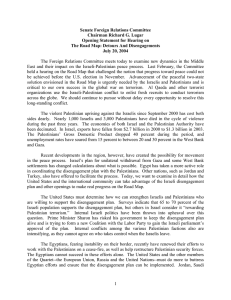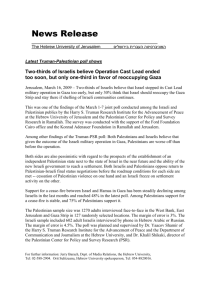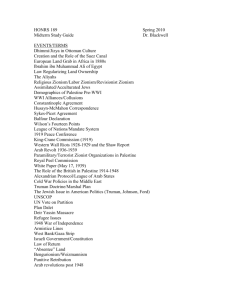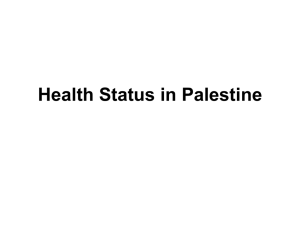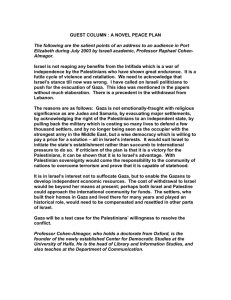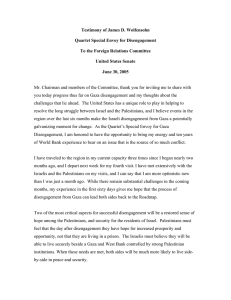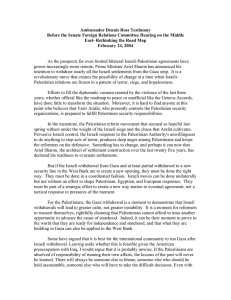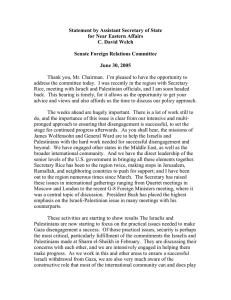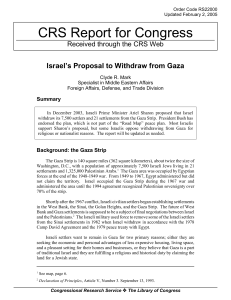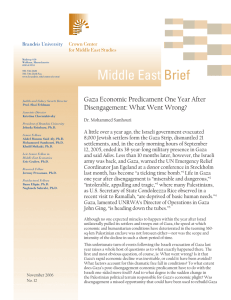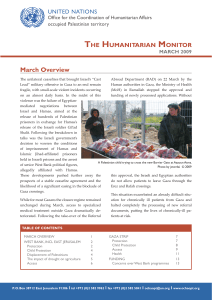Senate Foreign Relations Committee Chairman Richard Lugar Opening Statement for Hearing on
advertisement
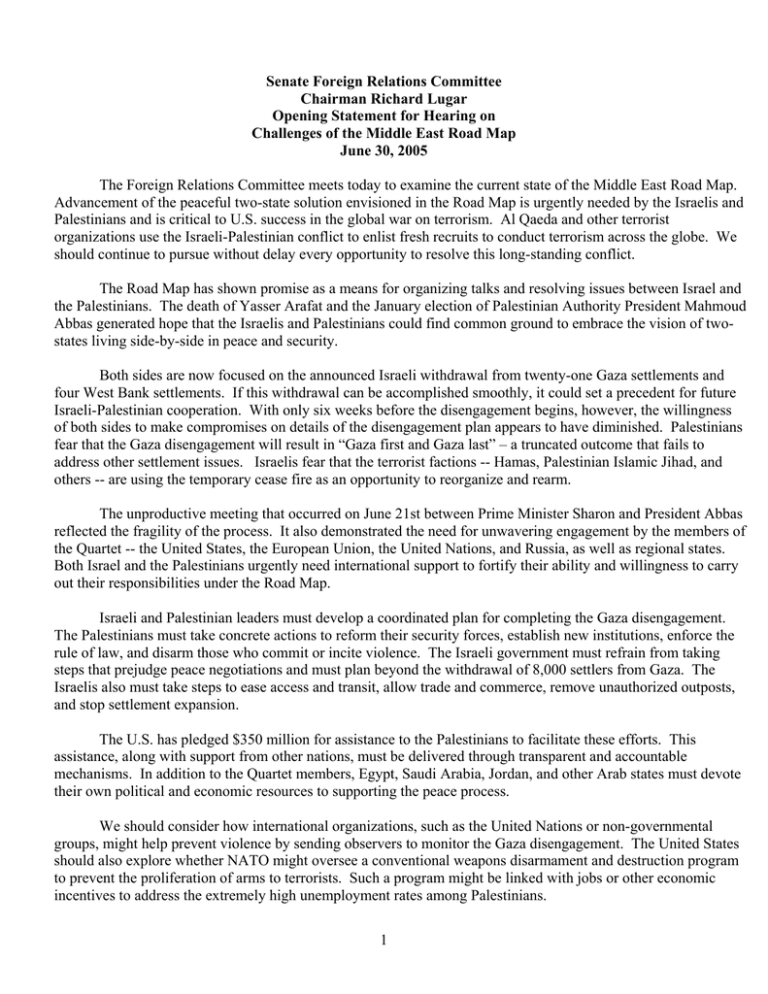
Senate Foreign Relations Committee Chairman Richard Lugar Opening Statement for Hearing on Challenges of the Middle East Road Map June 30, 2005 The Foreign Relations Committee meets today to examine the current state of the Middle East Road Map. Advancement of the peaceful two-state solution envisioned in the Road Map is urgently needed by the Israelis and Palestinians and is critical to U.S. success in the global war on terrorism. Al Qaeda and other terrorist organizations use the Israeli-Palestinian conflict to enlist fresh recruits to conduct terrorism across the globe. We should continue to pursue without delay every opportunity to resolve this long-standing conflict. The Road Map has shown promise as a means for organizing talks and resolving issues between Israel and the Palestinians. The death of Yasser Arafat and the January election of Palestinian Authority President Mahmoud Abbas generated hope that the Israelis and Palestinians could find common ground to embrace the vision of twostates living side-by-side in peace and security. Both sides are now focused on the announced Israeli withdrawal from twenty-one Gaza settlements and four West Bank settlements. If this withdrawal can be accomplished smoothly, it could set a precedent for future Israeli-Palestinian cooperation. With only six weeks before the disengagement begins, however, the willingness of both sides to make compromises on details of the disengagement plan appears to have diminished. Palestinians fear that the Gaza disengagement will result in “Gaza first and Gaza last” – a truncated outcome that fails to address other settlement issues. Israelis fear that the terrorist factions -- Hamas, Palestinian Islamic Jihad, and others -- are using the temporary cease fire as an opportunity to reorganize and rearm. The unproductive meeting that occurred on June 21st between Prime Minister Sharon and President Abbas reflected the fragility of the process. It also demonstrated the need for unwavering engagement by the members of the Quartet -- the United States, the European Union, the United Nations, and Russia, as well as regional states. Both Israel and the Palestinians urgently need international support to fortify their ability and willingness to carry out their responsibilities under the Road Map. Israeli and Palestinian leaders must develop a coordinated plan for completing the Gaza disengagement. The Palestinians must take concrete actions to reform their security forces, establish new institutions, enforce the rule of law, and disarm those who commit or incite violence. The Israeli government must refrain from taking steps that prejudge peace negotiations and must plan beyond the withdrawal of 8,000 settlers from Gaza. The Israelis also must take steps to ease access and transit, allow trade and commerce, remove unauthorized outposts, and stop settlement expansion. The U.S. has pledged $350 million for assistance to the Palestinians to facilitate these efforts. This assistance, along with support from other nations, must be delivered through transparent and accountable mechanisms. In addition to the Quartet members, Egypt, Saudi Arabia, Jordan, and other Arab states must devote their own political and economic resources to supporting the peace process. We should consider how international organizations, such as the United Nations or non-governmental groups, might help prevent violence by sending observers to monitor the Gaza disengagement. The United States should also explore whether NATO might oversee a conventional weapons disarmament and destruction program to prevent the proliferation of arms to terrorists. Such a program might be linked with jobs or other economic incentives to address the extremely high unemployment rates among Palestinians. 1 On our first panel today, we welcome Ambassador David Welch, Assistant Secretary of State for Near Eastern Affairs, who is responsible for U.S. policy and diplomacy in the region. We also welcome Lieutenant General William Ward, Deputy Commander of the U.S. Army in Europe and U.S. Coordinator for Security in Israel. General Ward has been tasked with helping the Palestinians reform their security organization and build infrastructure and capabilities to facilitate Palestinian and Israeli security cooperation. On our second panel, we welcome Mr. James Wolfensohn, the Quartet’s Special Envoy for the Gaza Disengagement. Mr. Wolfensohn is responsible for helping Gaza become economically viable after the Israeli withdrawal, a task for which his long experience at the World Bank has prepared him well. Each of our witnesses is playing a critical role in meeting the challenges in the Middle East, and we are grateful for their service. We look forward to hearing their testimony. ### 2

